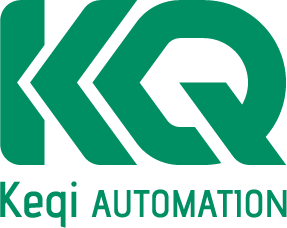Innovative Applications of Silicon Tape in Packaging Machinery
Release time:
2025-11-24
Source:
Silicon tape, a versatile and innovative material, has gained significant traction in various industrial applications, particularly within the packaging machinery sector. Its unique properties, including high temperature resistance, excellent adhesion, and flexibility, make it an ideal choice for numerous applications. This article delves into the various uses of silicon tape, providing insights t
Silicon tape, a versatile and innovative material, has gained significant traction in various industrial applications, particularly within the packaging machinery sector. Its unique properties, including high temperature resistance, excellent adhesion, and flexibility, make it an ideal choice for numerous applications. This article delves into the various uses of silicon tape, providing insights that can help professionals in the manufacturing and processing machinery industry enhance their operations.
One of the primary applications of silicon tape in packaging machinery is its use for sealing and insulating components. Given its ability to withstand extreme temperatures, silicon tape is particularly beneficial in environments where heat is prevalent, such as during the operation of thermal printers or heat sealers. By providing a reliable seal, it helps maintain product integrity and prevents contamination, which is crucial in food packaging applications.
Additionally, silicon tape is widely used for electrical insulation in packaging machinery. With its excellent dielectric properties, it ensures that electrical components are properly insulated, reducing the risk of short circuits and enhancing the overall safety of the machinery. This is particularly important in automated packaging systems that rely on precise electrical signals to operate effectively.
The flexibility and conformability of silicon tape also lend themselves well to vibration dampening and cushioning applications. In packaging machinery, where movements and vibrations are common, using silicon tape can help absorb shocks and minimize wear and tear on critical components. This leads to reduced maintenance costs and prolonged equipment lifespan, ultimately improving productivity.
Moreover, silicon tape's non-stick properties make it advantageous in conveyor systems where products are transported. By applying silicon tape to surfaces that come into contact with products, manufacturers can reduce friction, ensuring smoother movement along conveyor belts. This can lead to enhanced efficiency in the packaging process, as products can move swiftly and with minimal risk of damage.
In terms of sustainability, silicon tape is often reusable and can be applied in various configurations, making it an eco-friendly option when compared to traditional adhesive tapes that are single-use. This aligns well with the industry’s growing emphasis on environmentally responsible practices, providing an additional incentive for manufacturers to incorporate silicon tape into their operations.
In conclusion, the application of silicon tape in packaging machinery presents numerous benefits, from improved sealing and insulation to enhanced vibration dampening and reduced friction. As manufacturers continue to seek innovative solutions to optimize their processes, the integration of silicon tape stands out as a practical and effective choice. Understanding these applications can empower professionals within the manufacturing sector to leverage this material for greater efficiency and productivity in their operations.
One of the primary applications of silicon tape in packaging machinery is its use for sealing and insulating components. Given its ability to withstand extreme temperatures, silicon tape is particularly beneficial in environments where heat is prevalent, such as during the operation of thermal printers or heat sealers. By providing a reliable seal, it helps maintain product integrity and prevents contamination, which is crucial in food packaging applications.
Additionally, silicon tape is widely used for electrical insulation in packaging machinery. With its excellent dielectric properties, it ensures that electrical components are properly insulated, reducing the risk of short circuits and enhancing the overall safety of the machinery. This is particularly important in automated packaging systems that rely on precise electrical signals to operate effectively.
The flexibility and conformability of silicon tape also lend themselves well to vibration dampening and cushioning applications. In packaging machinery, where movements and vibrations are common, using silicon tape can help absorb shocks and minimize wear and tear on critical components. This leads to reduced maintenance costs and prolonged equipment lifespan, ultimately improving productivity.
Moreover, silicon tape's non-stick properties make it advantageous in conveyor systems where products are transported. By applying silicon tape to surfaces that come into contact with products, manufacturers can reduce friction, ensuring smoother movement along conveyor belts. This can lead to enhanced efficiency in the packaging process, as products can move swiftly and with minimal risk of damage.
In terms of sustainability, silicon tape is often reusable and can be applied in various configurations, making it an eco-friendly option when compared to traditional adhesive tapes that are single-use. This aligns well with the industry’s growing emphasis on environmentally responsible practices, providing an additional incentive for manufacturers to incorporate silicon tape into their operations.
In conclusion, the application of silicon tape in packaging machinery presents numerous benefits, from improved sealing and insulation to enhanced vibration dampening and reduced friction. As manufacturers continue to seek innovative solutions to optimize their processes, the integration of silicon tape stands out as a practical and effective choice. Understanding these applications can empower professionals within the manufacturing sector to leverage this material for greater efficiency and productivity in their operations.
How to Setup Tape Applicator Head
2025-11-08

